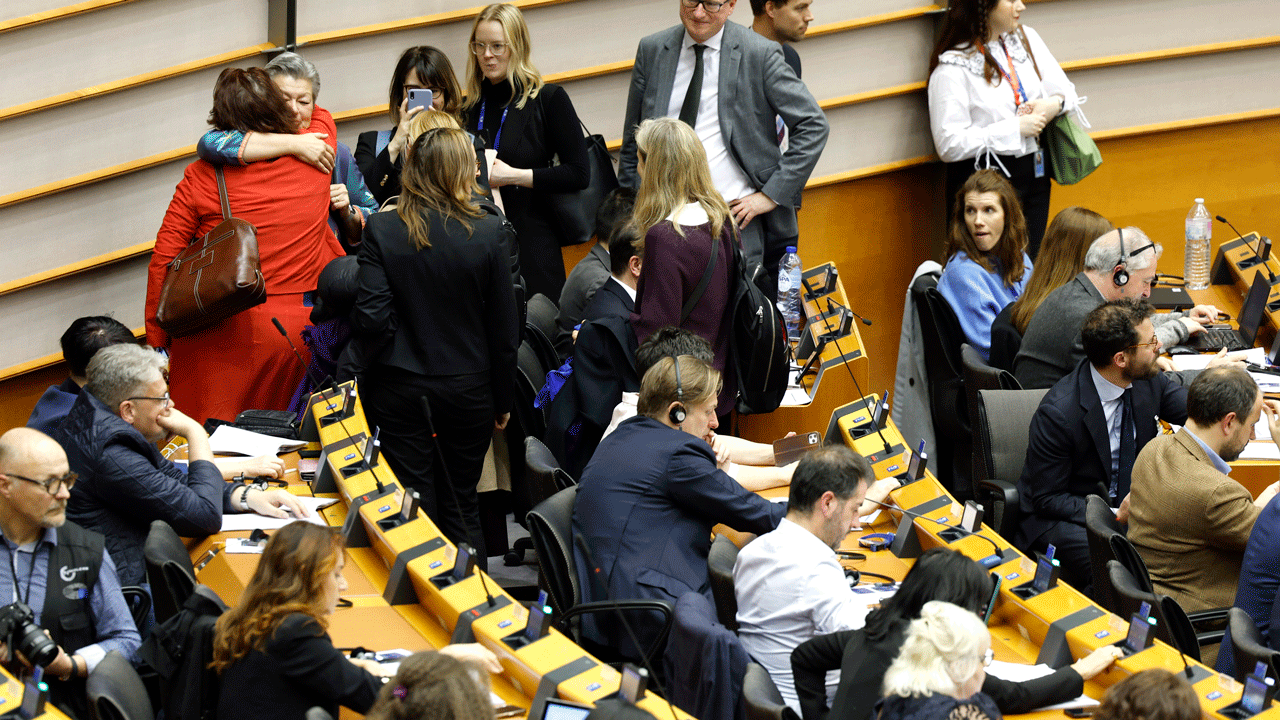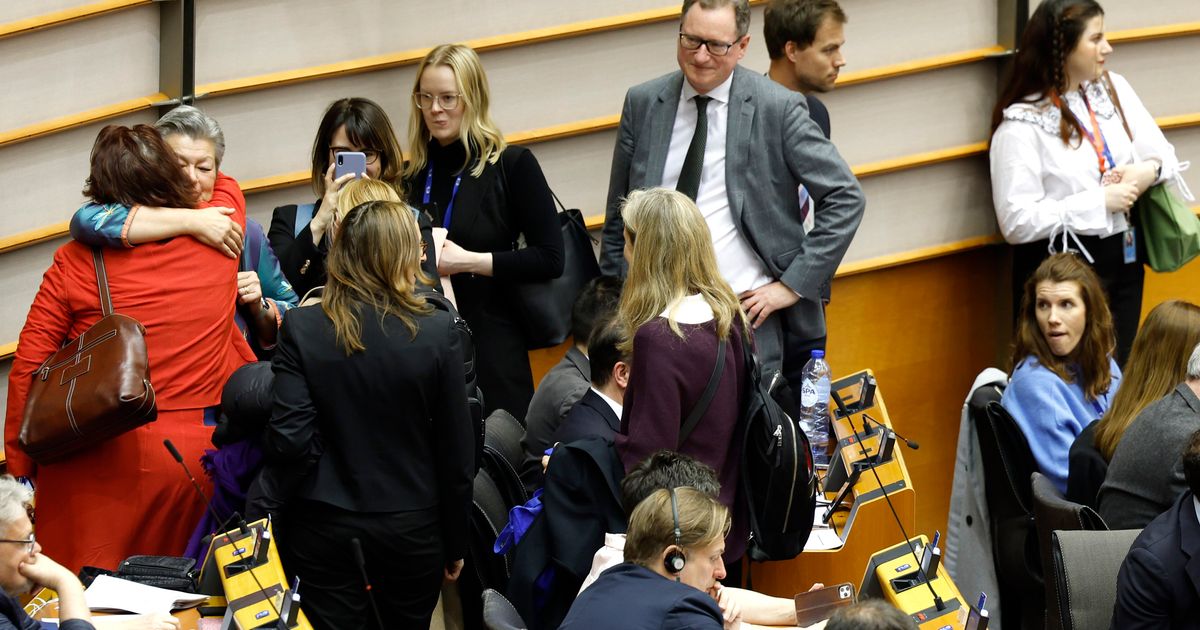European Union lawmakers recently approved a significant overhaul of the bloc’s migration laws, aiming to resolve years of discord regarding unauthorized entry and to strip the far right of a potent campaign issue ahead of the June elections. Through a series of 10 votes, the European Parliament endorsed the regulations constituting the Pact on Migration and Asylum. These reforms tackle the contentious matter of migrant responsibility upon arrival and the potential obligation of other EU countries to provide assistance.
The approval process faced a minor disruption from a vocal group of demonstrators in the public gallery, advocating against the pact, wearing shirts marked “this pact kills” and shouting “Vote no!” Now, the reform package awaits endorsement from the 27 EU member countries, anticipated to occur possibly in a late April vote, before it can be enacted. European Parliament President Roberta Metsola hailed the decision as historic, emphasizing the balance struck between solidarity and responsibility.
German Interior Minister Nancy Faeser echoed Metsola’s sentiment, characterizing the outcome as a significant success and highlighting the resolution of deep-seated divisions within Europe after years of tough negotiations.

Despite the consensus reached, not everyone is fully satisfied with the new policy response to Europe’s migration challenges. Some lawmakers, including Dutch representative Sophie i’nt Veld and Swedish parliamentarian Malin Bjork, express reservations, citing concerns about the effectiveness of the reforms.
The reform package, crafted in response to the 2015 refugee influx primarily from Syria and Iraq, introduces various measures, including controversial ones such as the potential detention of individuals during screening and the use of fast-track deportation for those denied stay. Conversely, it also mandates countries to assist EU partners by accommodating eligible asylum seekers or covering the costs of their accommodation elsewhere.
Criticism of the reform package comes from migrant and human rights groups, who argue that it fails to offer sustainable solutions and may exacerbate human rights violations. While acknowledging some positive aspects, such as provisions for refugee resettlement, these groups remain largely critical of the overall approach. Amnesty International’s Eve Geddie deems it a failure in global leadership, foreseeing reduced protection and increased risks of rights violations for migrants.
Mainstream political parties, eager to address migration concerns ahead of the upcoming elections, see the reforms as a step towards neutralizing the far right’s influence. However, voices like Beata Szydlo from Poland’s nationalist Law and Justice party criticize the pact, underscoring the need for fundamental policy changes.
The crux of the matter lies in whether member countries will fully implement the regulations and if the European Commission will enforce them effectively, given its reluctance in recent years to exacerbate political crises.
